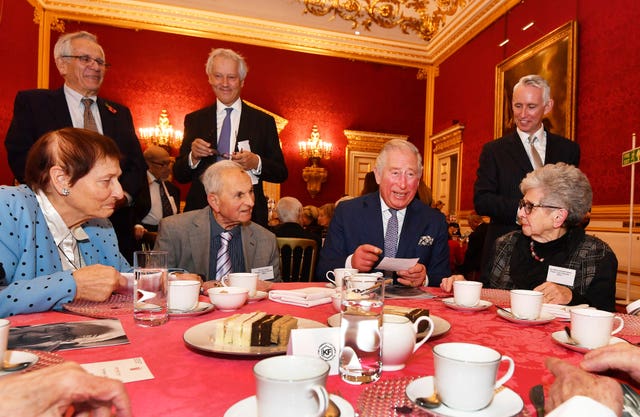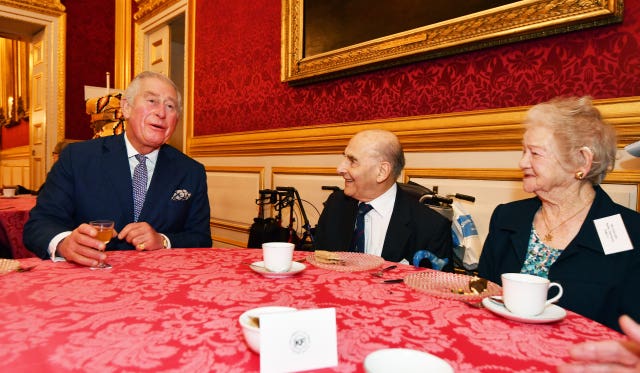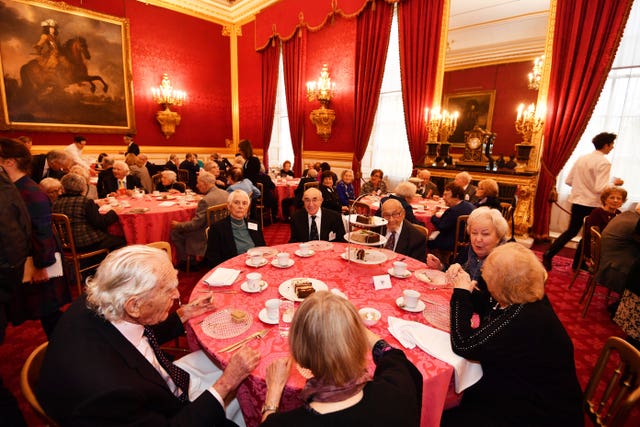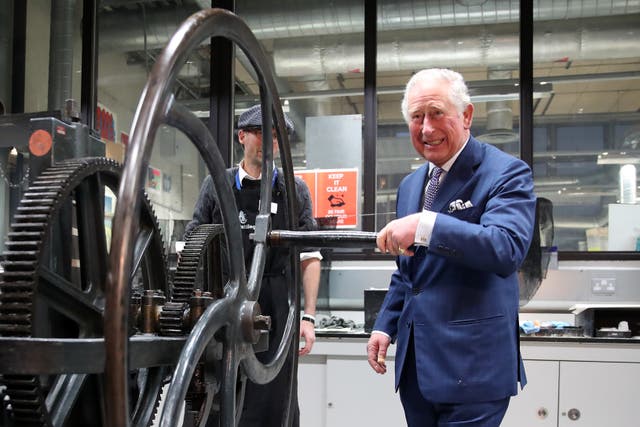Charles given birthday serenade by Kindertransport refugees
The Kindertransport brought some 10,000 children aged between three and 17 years to safety from Germany, Austria and Czechoslovakia and Poland.

The Prince of Wales has heard “astonishing” stories from people who were rescued as children from the Nazis as part of the Kindertransport, as he told them: “I hope that people have learned lessons”.
Many of those who attended a Clarence House reception marking the 80th anniversary of the start of the effort to bring children to safety in the lead up to the Second World War are now in their eighties and nineties.
Charles, who is patron of The Holocaust Memorial Day Trust and the World Jewish Relief Fund, said: “I can never get over your stories. I think what you all have gone through is astonishing.”

The Kindertransport brought some 10,000 children aged between three and 17 years to safety from Germany, Austria and Czechoslovakia and Poland in the lead up to the Second World War. Most were Jewish and more than half the children never saw their parents again.
Husband and wife Bob and Ann Kirk, were aged 13 and 10 respectively, when they came separately to Britain on the Kindertransport.

Mrs Kirk, 90, described Charles as being “extremely supportive” and that he takes a “very serious” interest in the Kindertransport.
She thought it may be because his grandmother Princess Alice of Battenberg, a granddaughter of Queen Victoria and the Duke of Edinburgh’s mother, saved the lives of Jews in Nazi-occupied Athens by hiding them during the war.
Marcel Anisfeld, 84, told Charles he had “survived the war by deportation”, before leading a chorus of Happy Birthday to the Prince, who has just turned 70.
He then handed over a birthday card with a hologram of a lion on it and Charles thanked him and promised to read it later, before turning to the Kirks and saying: “I need my glasses.”

The first transport, from an orphanage in Berlin, arrived into London Liverpool Street station on December 2 1938, while some of the children rescued went to Southampton by boat. The first transport from Vienna left on December 11 the same year.
Charles also spoke to Herman Rothman, 94, who was 15 when he arrived in Britain from Berlin a week before the war broke out.
Mr Rothman went on to work for the British intelligence service, was an interrogator and also one of the people to translate Hitler’s will. He said Charles was “very interested” in his work for the British.
The Clarence House event was jointly organised with the Association of Jewish Refugees.
Charles later worked a historic printing press and was told about experiments to reduce the environmental impact of methane from cows during a visit to the Royal College of Art (RCA).

As he turned the large but smooth-running wheel to create an aquatint, he said: “It has the most fantastic gearing. Am I going at the right speed? This is very good exercise.”
Former student Francisco Morris also told Charles about his work in trying to transform methane from cows so it reduces the potential global warming impact of the gas.
It was Charles’s first visit to the Battersea campus in south-west London, since becoming Royal Visitor in May.
He also saw displays of melting and fusing glass, slip casting and glass blowing by students.
Vice chancellor Dr Paul Thompson, who said the RCA aims to combine science, arts and industry, said: “It was a wonderful opportunity for us to demonstrate how we are leading the way in design globally and embracing new areas of research and innovation.”





